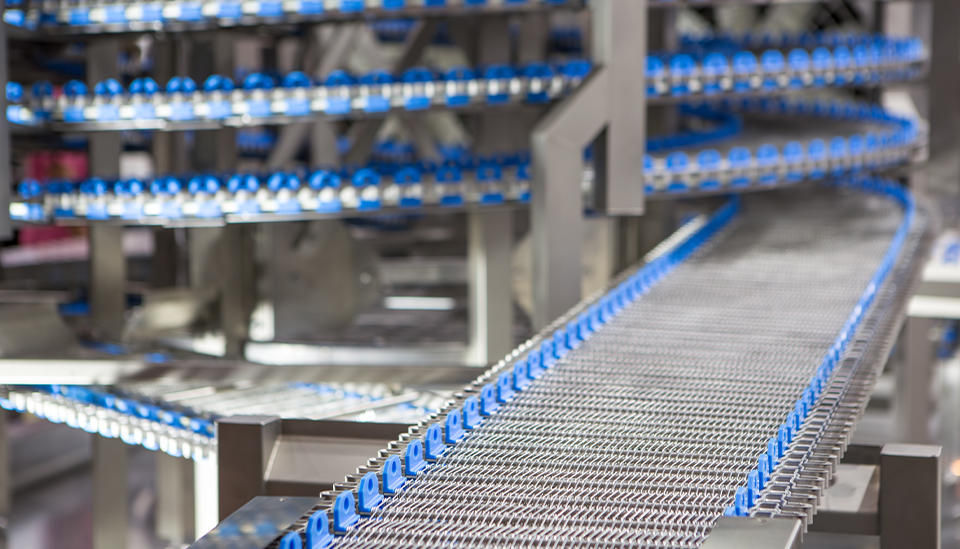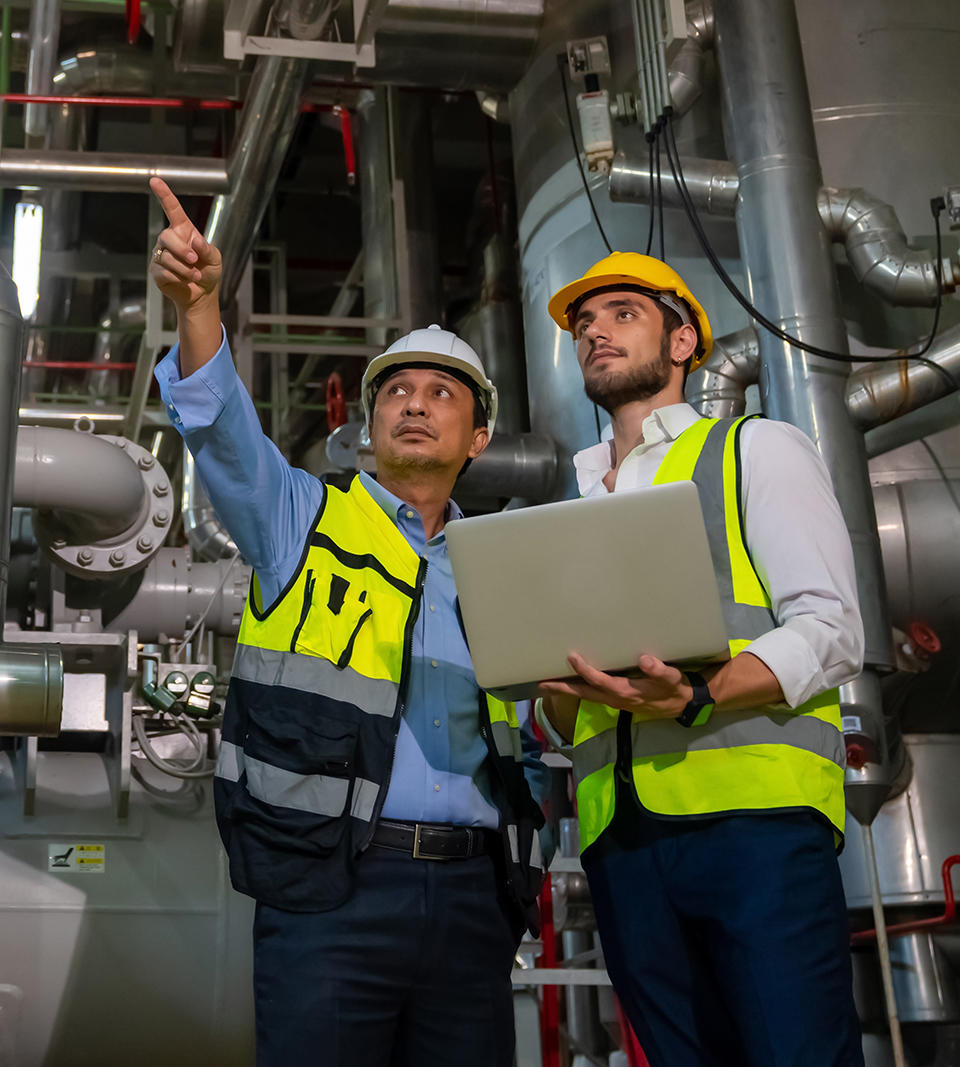
Colorado Industrial Tax Credit Offering
Colorado Industrial Tax Credit Offering
Accelerating the reduction of greenhouse gas emissions from industrial facilities.
Funding Overview:
Type: Refundable Tax Credit
For: Industrial Facilities
Amount: $168 million total; up to $8 million per eligible project
Match: Varies
Program length: Until all tax credits are reserved, or through 2032
Application cycles: Semi-annual, estimated opening dates are April 1 and October 1, closing on June 30 and December 31, respectively, each year. CEO is not currently accepting applications.
When businesses invest to reduce greenhouse gas emissions now, they’re helping create a sustainable and prosperous Colorado. To make the choice simpler, the Colorado Energy Office (CEO) offers the Colorado Industrial Tax Credit Offering (CITCO) – $168 million in refundable tax credits for industrial facilities to explore and implement greenhouse gas emission reduction projects.
Invest today. Save tomorrow.
The Colorado Industrial Tax Credit Offering (CITCO) is a competitively awarded, refundable tax credit.
What is a refundable tax credit? A refundable tax credit is a credit you can receive as a refund on your taxes if the credit amount is more than the amount of taxes you owe.
Newsletter
Sign-up for the CITCO newsletter to receive information on upcoming webinars, application period information and other opportunities.
Sign Up to Receive Updates About This Tax Credit
Contact Information:
ceo_citco@state.co.us
Webinar and Office Hours
CEO hosted an Informational Webinar about the fourth application cycle.
Watch the webinar
View Cycle 4 Q&A responses

Eligible Applicants
Manufacturing facilities of all sizes in Colorado that are considering decarbonization solutions to offset greenhouse gas emissions, improve operational efficiency, incorporate more sustainable equipment and save money. CITCO Applicant eligibility includes:
- An “Industrial Facility” subject to taxation within the State of Colorado defined as: Any real property where the principal trade or business activity is the mechanical or chemical transformation of organic or inorganic substances into new products, characteristically using power-driven machines and materials handling equipment.
- Further explanation of an “industrial facility” can be found under C.R.S § 39-22-551.
- Further definition & criteria for eligible Colorado taxpayers can be found under C.R.S § 39-22.
- Industrial and manufacturing companies/businesses meeting North American Industry Classification System (NAICS) Codes 31 – 33.
- Entities regulated by Greenhouse Gas Emissions and Energy Management for Manufacturing in Colorado (GEMM-I or GEMM-2).
- “As-a-Service” providers, including but not limited to Energy-as-a-Service companies, Sustainability-as-a-Service companies, etc.
- Carbon management project developers (including Direct Air Capture, Carbon Removal, Carbon Capture, Carbon Storage, Carbon Utilization).
- Specialty Purpose Vehicles (SPV)
Eligible Projects
CITCO funding can be used toward industrial studies, retrofit, expansion and new build projects. Studies might include energy and emissions audits or feasibility studies.
Eligible projects include:
- Industrial Studies, including:
- Industrial energy and emissions audits
- Feasibility studies
- Pre-FEED and front-end engineering and design studies meeting CITCO’s standards
- Improvements at existing and new/expansion facilities that help measurably reduce greenhouse gas emissions, including:
- Introducing Embodied Carbon solutions in a manufacturers’ supply chain
- Replacing fossil-fuel-powered off road equipment, such as forklifts and construction equipment, with electric equipment
- Replacing fossil-fuel-fired equipment for space or water heating or industrial process heating with high-efficiency electric equipment
- Replacing fossil-fuel-fired or compressed air-driven industrial process equipment with high-efficiency electric equipment
- Placing in service advanced refrigeration systems that reduce greenhouse gas emissions
- Placing in service waste heat recovery technology
- Upgrading or implementing energy monitoring systems
- Improvements that help measurably reduce greenhouse gas emissions, including (cont.):
- Installing high efficiency electric pumps, motors, compressors, and lighting
- Installing variable volume or load efficiency equipment
- Installing carbon capture equipment that demonstrates a net reduction in greenhouse gas emissions and provides a permanent durable carbon storage plan; the captured carbon may not be used for enhanced oil recovery
- Installing equipment used for collection of biomethane
- Replacing fossil-fuel-fired equipment with hydrogen fueled equipment
- Installing hydrogen fueling stations for fuel cell vehicles at industrial facilities
- Converting fossil-fuel-powered pumps, compressors, and controllers to compressed air-driven or electric-driven pumps, compressors, and controllers
- Installing onsite energy storage
- Installing or upgrading to utility service feed equipment to directly support the implementation of any of the electrification improvements
- Placing in service carbon management systems including direct air capture and other forms of carbon dioxide removal
- Thermal energy storage projects
- Material substitutions within industrial processes to reduce industrial process emissions by a minimum of 20% percent when compared to existing production practices; and
- Other similar improvements as established in CITCO’s standards
Please Note: The office may reserve credits for the current or any future tax year based on the anticipated completion or in-service date indicated in the entity's application. However, credits may not be reserved for studies or projects completed before the end of the application and approval process.
Teaming list
CEO created a centralized public teaming list/directory for the manufacturing industry in Colorado.
View industrial decarbonization teaming list
Sign up for teaming list
Note: The Colorado Energy Office is providing this teaming list as a public resource to facilitate industry connections. Inclusion on the public list does not constitute an endorsement, certification, or recommendation of any specific contractor or entity by the Colorado Energy Office. Users are encouraged to perform their own due diligence and verification.
How It Works
Interested parties can find the previous application materials, including Standards and Guidelines, application questions, and required supporting documents, for reference in the folder linked under ‘Step 1’ below.

Download and review all the Application Materials and CITCO standards and guidelines, including general standards and guidelines and project type specific standards and guidelines

Submit the application through the CITCO application portal. CEO is not currently accepting applications.
View CITCO application demo video

An evaluation committee will review and score applications based on predefined selection criteria.

CEO will enter a formal Tax Credit Agreement with awardee outlining terms and conditions to receive the tax credit.

CEO will provide a tax credit certificate for the awardee to file with the Colorado Department of Revenue (DOR) during their tax filing period upon project completion

DOR reduces tax liability for tax year and amount outlined in Conditional Agreement, refunding any remaining amount as applicable.

Program Feedback
We welcome feedback on the CITCO program’s application process, challenges to participation, and overall effectiveness. Your feedback will help us identify areas for improvement to better serve Colorado businesses.
CITCO Program Feedback Survey
Additional Resources
View previous CITCO Q&A responses
View CITCO one-pager for Manufacturers
View CITCO one-pager for Partner Organizations
Additional project funding opportunity available through the Collective Clean Energy Fund (CCEF):
Learn more about CCEF's offerings
